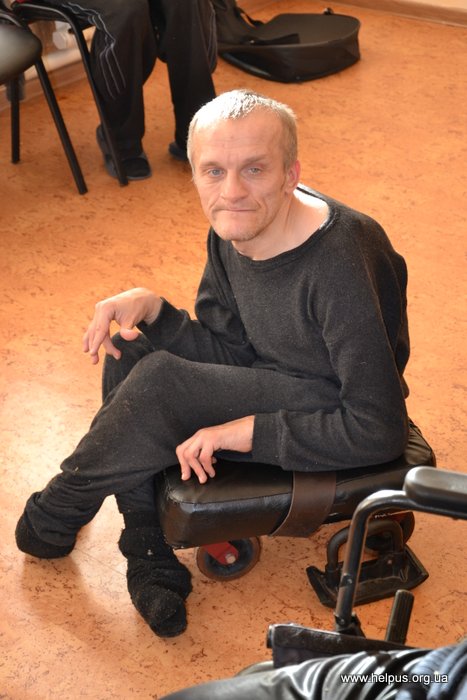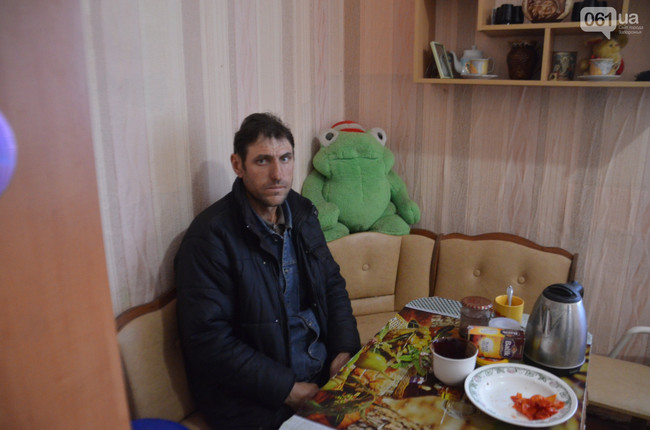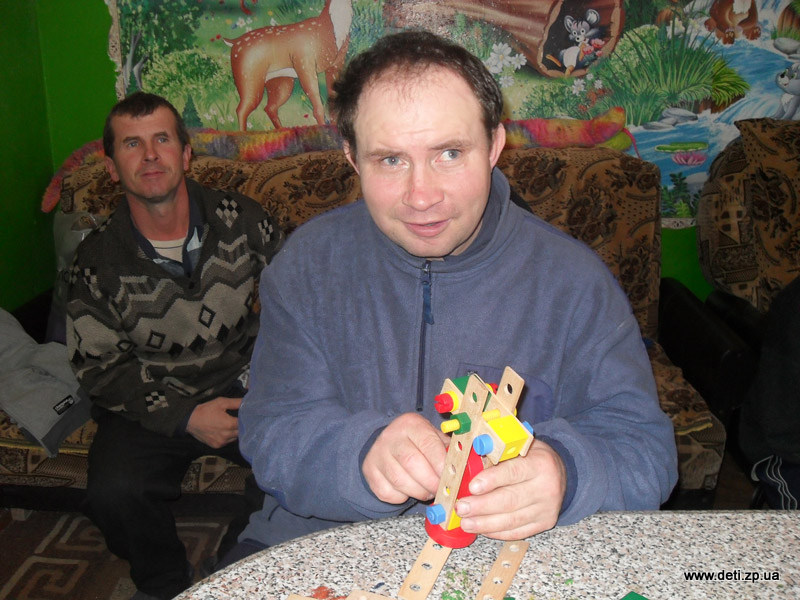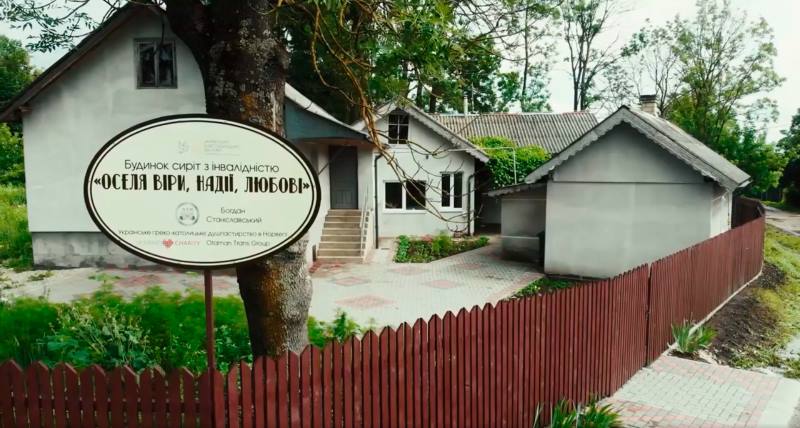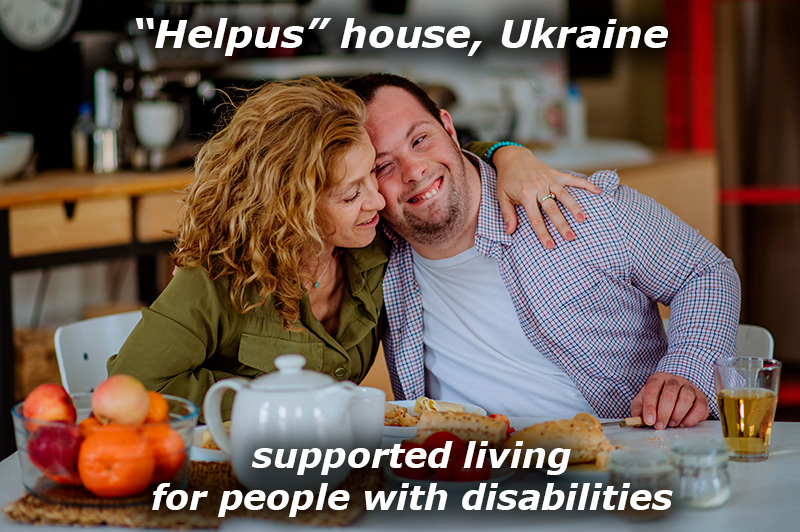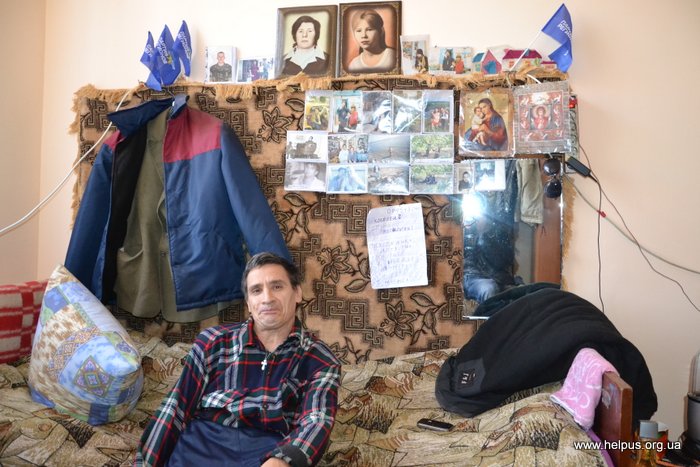
How does the majority of Ukrainians imagine the psycho-neurological institution (PNI)? I don't think there is much mention of these institutions. Many confuse them with mental hospitals or simply call them "madhouses". A place to be avoided. Therefore, since Soviet times, most PNI were placed on remote farms and surrounded by a fence.
In 2009, for the first time, I visited one of the PNIs in the Zaporizhzhia region. About 240 men from 18 to 80 years old lived in a small two-story kindergarten-type building. In each small room - 3-4 beds, and very little space between them. Dark corridor, with rooms on both sides. For this whole building there are two small common rooms for watching TV. About 30 men gather in each such room. A non-working TV suspended from the ceiling, in which for some reason many men are carefully watching.
PNI inhabitants are very different people, and not all of them have mental illnesses. There are simply people with disabilities who are unable to move because of cerebral palsy or for another reason. There are people with Down syndrome, profound mental retardation, or other congenital malformations. There are people with senile dementia, schizophrenia. With amputations of limbs, frostbite due to alcoholism. There are those who have a prison term for murder behind their backs, and there are eighteen-year-old boys with mental retardation, only transferred here from a children's psycho-neurological institution.
All of this is very reminiscent of a prison, except that most of the staff are women. There are no bars on the windows and no barbed wire on the fence.
On the night shift, one nanny can stay in the care of 40 to 80 inhabitants. If there are bedridden inhabitants, there is a little more staff, but it is sorely lacking. Therefore, the "lying" inhabitants of PNI have practically no chance to go outside, or at least leave their "ward" for a common room. And there is a smell in the institution, from which the clothes stink for a long time after each visit.
Special mention deserves a small house in which 18 of the most "difficult" inhabitants live. These people practically do not react to the surrounding reality, they do not talk, they cannot serve themselves. They can sit all day, swaying, on a bench and look at the wall. Some may occasionally make heart-rending cries and show aggression. And someone - just lie, twisted into a ball, on the concrete floor under the bench. But the most surprising - at the time of my arrival in this house there was not a single nanny or orderly. Just 18 men gathered in one room, under the supervision of another inhabitant, from a neighboring building. This stern-looking peasant served as an overseer, and did not differ in the choice of means to restore order. And most likely, he received privileges from employees for doing their work. Usually the payment for such work can be cigarettes, alcohol, food or other goodies.
Of course, I have described to you not the best psycho-neurological institution. In some institutions, the buildings are smaller and more comfortable, there are more places, and the staff is more adequate. But in general, the picture remains - in each PNI, from a hundred or more people with severe disabilities live in rather crowded conditions, isolated from society, with a minimum number of staff, and without proper medical care.
With the outbreak of war, inhabitants from the eastern regions were evacuated to these psycho-neurological institutions, and the situation became even worse. And thousands of PNI inhabitants remained in the occupation, and their fate is currently unknown.
Over the past years, I have visited many PNIs in Zaporizhzhia, Donetsk and Luhansk regions. And every time I felt that we simply have to change the system, which humiliates human dignity. The war only exacerbated this problem.
On our website "Helpus" we have created a whole section about the problems of this system, placed life stories some inhabitants. And recently, many articles have also been translated into English so that these problems can be understood by inhabitants of other countries and international foundations. Also, I described my vision how to solve these problems, and I continue to refine and supplement this document.
I would like to believe that volunteers, foundations and the state, with the support of international funds, will be able to move the situation with PNI off the ground. I will be glad to any useful contacts, suggestions, ideas for work in this direction. Contact us!






